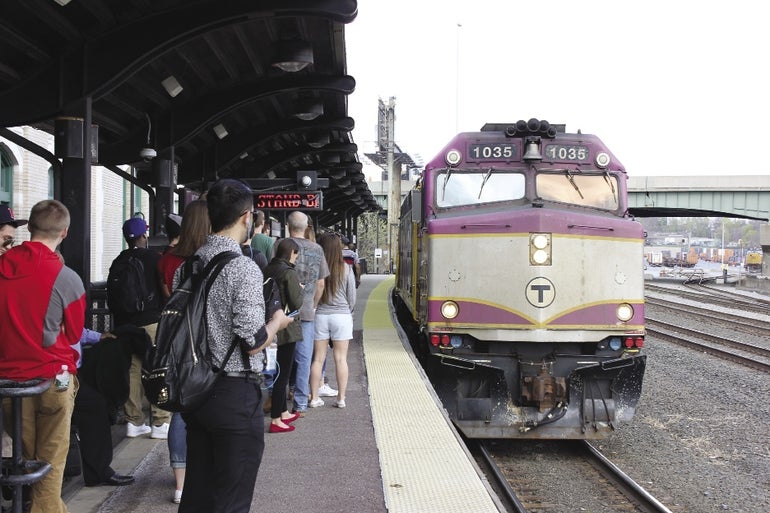The MBTA is eyeing fare hikes that could punch a hundred-dollar hole in the pockets of regular subway riders over the course of a year, a move one transit advocate likened to “punishing the victim” following recent service failures.
The MBTA’s Fiscal and Management Control Board elected on Monday to advance for public comment two fare-hike scenarios that would raising fares an average of about 5 percent or 10 percent starting in July.
In both scenarios, bus and subway pass-holders would see their discount erode as the price hikes for those products would outpace increases to single-ride fares.
“We have very deeply discounted passes, more than other big city transit systems. Our passes are a great deal and we want them to stay a good deal,” Transportation Secretary Stephanie Pollack told reporters.
The fare hike proposals arrive close to the anniversary of the state temporarily shutting down MBTA service late last January, the prelude to a bitter cold and snow spell that saw service grind to a halt at times on several stretches of track.
“These two options for fare increases that were proposed today are punishing the victim. We’ve gone through a winter where people didn’t have any service,” Rafael Mares, vice president and director of Healthy Communities and Environmental Justice at the Conservation Law Foundation, told reporters. He said, “The last time tolls were increased on one of our bridges or tunnels was in 2004. During this time period the MBTA fares were increased four times. This would be a fifth time.”
After a meeting with the governor, legislative leaders also voiced caution on fare hikes.
House Speaker Robert DeLeo said fare increases should be the “last avenue” considered, pointing to advertising and real estate sales as other potential revenue sources that should be considered.
“I think when it comes to fare increases, we ought to hold off and let’s see some of the other options that are out there,” DeLeo told reporters.
Senate President Stanley Rosenberg and Sen. Tom McGee, co-chairman of the Transportation Committee, have suggested fare increases should be limited to no more than 5 percent every two years. The Baker administration’s reading of the 2013 law, which jibes with McGee’s House co-chairman on the committee, allows for 10 percent hikes every two years. The last fare hike was a 5 percent increase in 2014.
Rosenberg said that while fare increases could provide tens of millions of dollars, “the problems are in the billions,” and more money would still need to be found.
“We’re concerned that the higher you drive the rates, the more people get off the trains and off the buses back onto the roads, so everybody loses in that scenario,” Rosenberg said. “So you have to proceed with extreme caution in this regard, and there is no way that we’re going to be able to fix all the problems at the T on the basis of fare increases.”
Gov. Charlie Baker on Monday said it is important the fares go to “improve the rider experience,” and speaking for those whose tax dollars finance a transit agency they don’t use, he said, “We should never forget most people in Massachusetts who don’t ride the T write a billion dollar check every year to support the T, and we need to keep their interests in mind as we have this conversation as well.”

